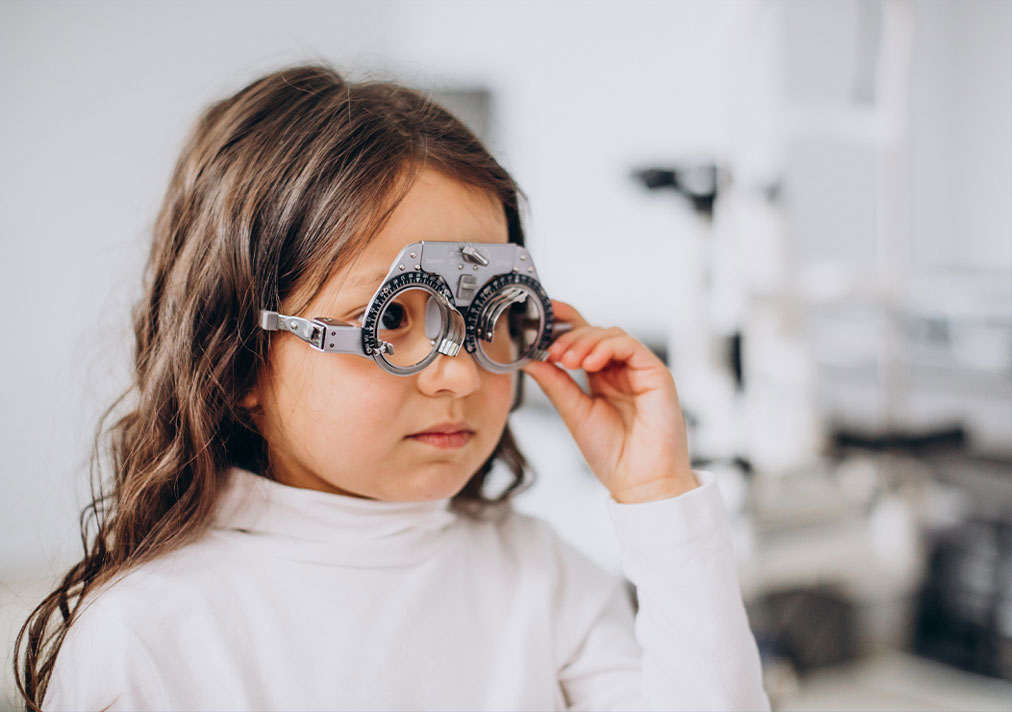The rainy season is refreshing, cooling, and much-awaited after the long summer days. However, this season not only comes with fresh cool breezes and rains but is also accompanied by high humidity and contaminated water, both of which pose the danger of various infections, particularly those associated with the eyes. If you often have red, itchy, or watery eyes during the monsoon, you should visit Eye-Q Eye Hospitals , a leading name in eye care.
Knowing the causes of these infections and learning what to do to keep them out of your way can help guard your sight at this delicate time of the year.
Why Eye Infections Rise During Monsoon
Monsoon creates a breeding ground for the growth of bacteria and viruses. The high air humidity, increased waterlogging, and contaminated rainwater create a perfect environment for the proliferation of germs. These microbes can easily enter the body through the eyes, either from direct rain splash onto the eye, or by touching the eyes with contaminated hands.
Types of Eye Infections During Monsoon
1. Conjunctivitis (Pink Eye)
This common eye infection appears during the monsoon. It is contagious and is transferred quickly through contact.
- Caused by: Bacteria or viruses
- Symptoms: Redness, watering, itching, sticky discharge
- Spread through: Towels, hands, eye drops, or direct contact
- Contagious: Yes
2. Stye (Hordeolum)
A stye is a painful sore on the eyelid, which appears when a bacterial infection has taken place at the root of the eyelashes.
- Caused by: Clogged glands or contaminated follicles
- Symptoms: Swelling, tenderness, localised pain
- Contagious: No, but poor hygiene predisposes one to get it
3. Allergic Conjunctivitis
It is not infectious, but it creates significant discomfort. Monsoon is characterised by common allergens that include dust, mould, and pollen.
- Caused by: Allergens in the air
- Symptoms: Red, itchy, watery eyes
- Contagious: No
4. Keratitis
It is a condition that affects the cornea and may cause severe damage if it is not treated at an early stage.
- Caused by: Bacteria, fungi, or viruses
- Symptoms: Eye pain, blurred vision, sensitivity to light
- Contagious: Occasionally, depending on the cause
5. Dry Eyes
Drying up of the eyes may be caused by monsoons and air conditioners.
- Caused by: Lack of moisture on the eye surface
- Symptoms: Gritty feeling, stinging, blurred vision
- Contagious: No
Causes Behind Eye Infections in Monsoon
-
Contaminated Rainwater
Pollutants, sewage, and bacterial materials come with rainwater, particularly in urban areas. When it gets into the eyes, it may trigger extreme irritation and infection.
-
Poor Personal Hygiene
Leaving dirty hands on top of the eyes or placing dirty towels increases the chances of having infections. This is the common pathway for conjunctivitis.
-
Shared Personal Items
Sharing of cosmetics, lenses, or towels exposes one to cross-infection. One must make sure to use personal eye care products only.
-
Airborne Allergens
During the monsoon, moisture inside buildings creates a condition in which mould spores and dust particles stir up. Such are the causative agents of allergies in hypersensitive people.
-
Misuse of Contact Lenses
Bacteria can be transferred into the eye through wearing contact lenses for a long period or even poor cleaning of the contact lenses.
Signs You Might Have an Eye Infection
Knowing the warning signs will assist in averting the complications. Pay attention to these symptoms, and if you see any of them, immediately consult a doctor:
- Redness or swelling of the eye
- Watering or sticky discharge
- Blurred or cloudy vision
- Burning or gritty sensation
- Light sensitivity
- Pain when blinking or touching the eyelids
Tips to Prevent Eye Infections in Monsoon
- Do not touch your eyes, particularly when your hands are not clean
- Use clean towels and do not share eye makeup or lenses
- During heavy rains, try to stay indoors so as not to be affected by polluted water
- Wear safety glasses when you are bound to be in the rain
- Splash clean, pure water gently to keep your eyes healthy.
- Don’t swim in public pools or ponds during monsoon.
- Change contact lens solution daily and do not use the lenses when the eyes appear red or itchy
Home Care for Minor Eye Discomfort
If your symptoms are mild, you may be able to manage them yourself before thinking of going to the doctor:
- Splash a little bit of clean, cold filtered water over your eyes.
- Apply a clean, cool compress to shut eyelids.
- Do not use eye makeup or lenses until the signs are gone.
- Use preservative-free lubricating eye drops ( only on the advice of a pharmacist or doctor)
Do not apply old prescriptions or over-the-counter antibiotic drops without being diagnosed properly.
When to Seek Immediate Medical Help
You should not overlook the following symptoms:
- Vision loss or sudden blurriness
- Severe pain in or around the eyes
- Continuous discharge or swelling
- Foreign body sensation that doesn’t go away
- Recurring eye infections despite care
When diagnosed early, you can recover faster and avoid long-term damage.
Conclusion
Eye infections caused by monsoons are a common condition and easily avoidable with on-time care and good hygiene. Keep your eyes safe by paying attention to symptoms and getting early treatment. Safe practices, knowledge, and clean habits can make a big difference. If you have any eye discomfort or feel that you have an eye infection, visit the specialists at Eye-Q Eye Hospitals to get quality and trusted eye care during the monsoon season. Keep your eyes as clear as the skies after rain.
FAQs
1. What makes eye infections most prevalent during monsoon?
During monsoons, eye infections are more common because of high humidity levels, poor hygiene, and exposure to contaminated water.
2. Can I wear contact lenses during the monsoon?
Yes, but only with proper hygiene. Do not wear lenses when your eyes are irritated or when outbreaks of infections take place.
3. What should I avoid if I have conjunctivitis?
Avoid touching your eyes, sharing towels or makeup, and going out in dusty or polluted places.
4. Can eye infections spread from one person to another?
Yes, infections such as viral or bacterial conjunctivitis are easily spread by contact or the sharing of objects.
5. What is the safest way to clean eyes at home?
Use clean, filtered water or prescribed sterile saline to rinse the eyes gently.
6. Can I use old eye drops from some earlier infection?
No, do not take old medicine without consulting an eye doctor. The cause of infection may vary.




